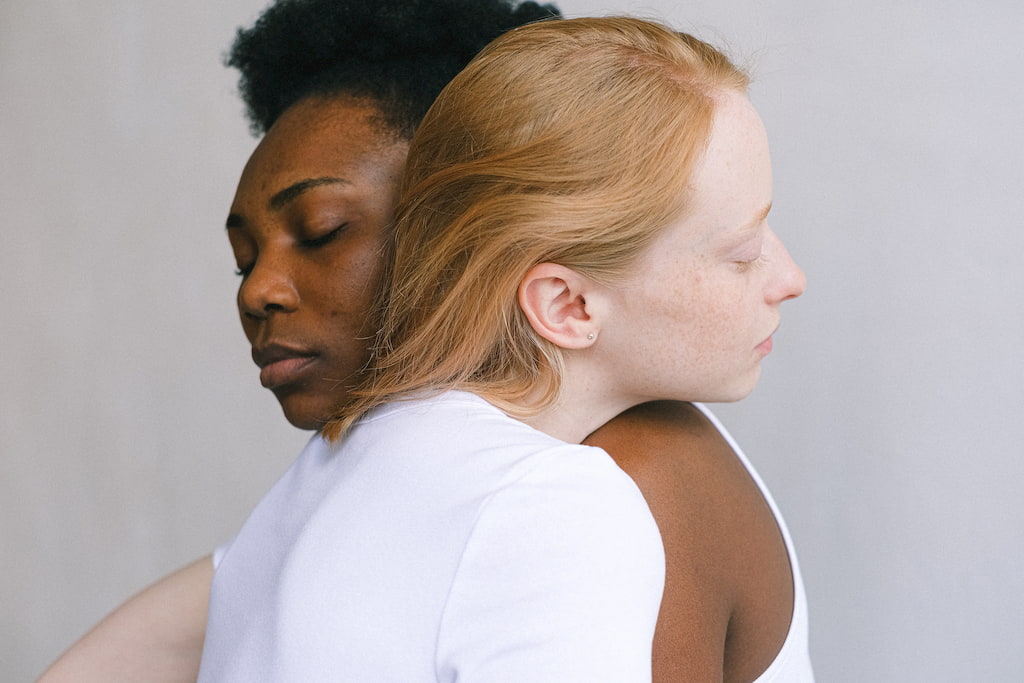Hugs: A Natural Painkiller!

Contents
Who doesn’t love a tight hug filled with love? Unsurprisingly, hugs are not only a popular way to demonstrate affection, but also a method of reducing physical pain and some feelings of depression. Find out how this is possible in this article!

A bit of science: why hugs can act as great painkillers and alleviate some feelings of depression.
Before moving into the warm and fuzzy side of this article, let’s take a look at some cold hard facts. It may seem strange how the simple act of hugging can impact feelings of pain and depression, yes?
Well, there’s a hormonal explanation for it all! When you hug a person, the brain secretes oxytocin, also known as the attachment hormone. Side note, I’m talking about a real hug here, because a pat on the back won’t cut it. The duration of the hug must be at least 20 seconds to enjoy its benefits!
Once secreted, oxytocin blocks cortisol, the stress hormone, and relaxes our muscles, reducing pain. As if that wasn’t enough, hugging reduces blood pressure as well, creating the perfect wellness cocktail!

The secret of a successful hug: intention.
Of course, not all hugs are the same. Although the idea of a hug may seem pleasant, some hugs are not as affectionate as others.
When we’re not emotionally invested in the person we’re hugging, the exchange does not have the same effect. I’m thinking about those hugs where you feel a little bit forced, like when adults push children to hug their peers or another adult or when we feel pressure to hug someone when we may not be open to touch at that moment. Although these hugs may have been offered with good intentions, the emotional exchange is not as powerful as a cuddly hug with someone you feel close to, trust, and love, for example. The intention behind giving and receiving a hug has a significant impact on the benefits that can be derived from that experience.
In order for the brain to release oxytocin in response to a hug, the intention behind wanting to hug or to receive a hug from someone must be filled with love and grounded in the present moment.
So the next time you have the chance to hug someone you love, make sure you’re not making a shopping list in your head, or projecting yourself into your next activity. Take a deep breath and let the magic of affection carry you away.
Otonamaki: the Japanese technique for relaxing in a cuddly feeling.
Did you know that the Japanese have invented a technique to recreate the feeling of being cradled in our mother’s womb? Indeed, it’s called Otonomaki.
Actually, the primary purpose of this technique is to relax the back muscles. To do it, you have to be wrapped in a cloth sheet of any kind, while being in the fetal position… It may sound strange, but it seems to be very soothing for both body and mind!
A journalist tried the experiment during a trip to Tokyo. Although she was skeptical at first, she came out of it completely relaxed, with a strong desire to sleep.
The reason for this is that the sensation of being tightly held, here again, transports us to our oldest memories: those of our arrival on earth, warm and safe, in mom’s womb.
In such an environment, our mind can then settle down, because it no longer has any reason to worry, and it feels taken care of.

No one available for a hug? No problem!
If you’re really in need of a hug and no one is around, not to worry! Hugging yourself also works.
Wrap your arms around yourself, and bend your head down toward your chest to feel held. Take a deep breath and feel this moment of connection with and love for yourself.
If you have a dog, cat, or other pet, that works too. Give them a big hug, and let them enjoy this precious moment that will be good for both of you, I promise!
Translator: Stella Debiaggi


